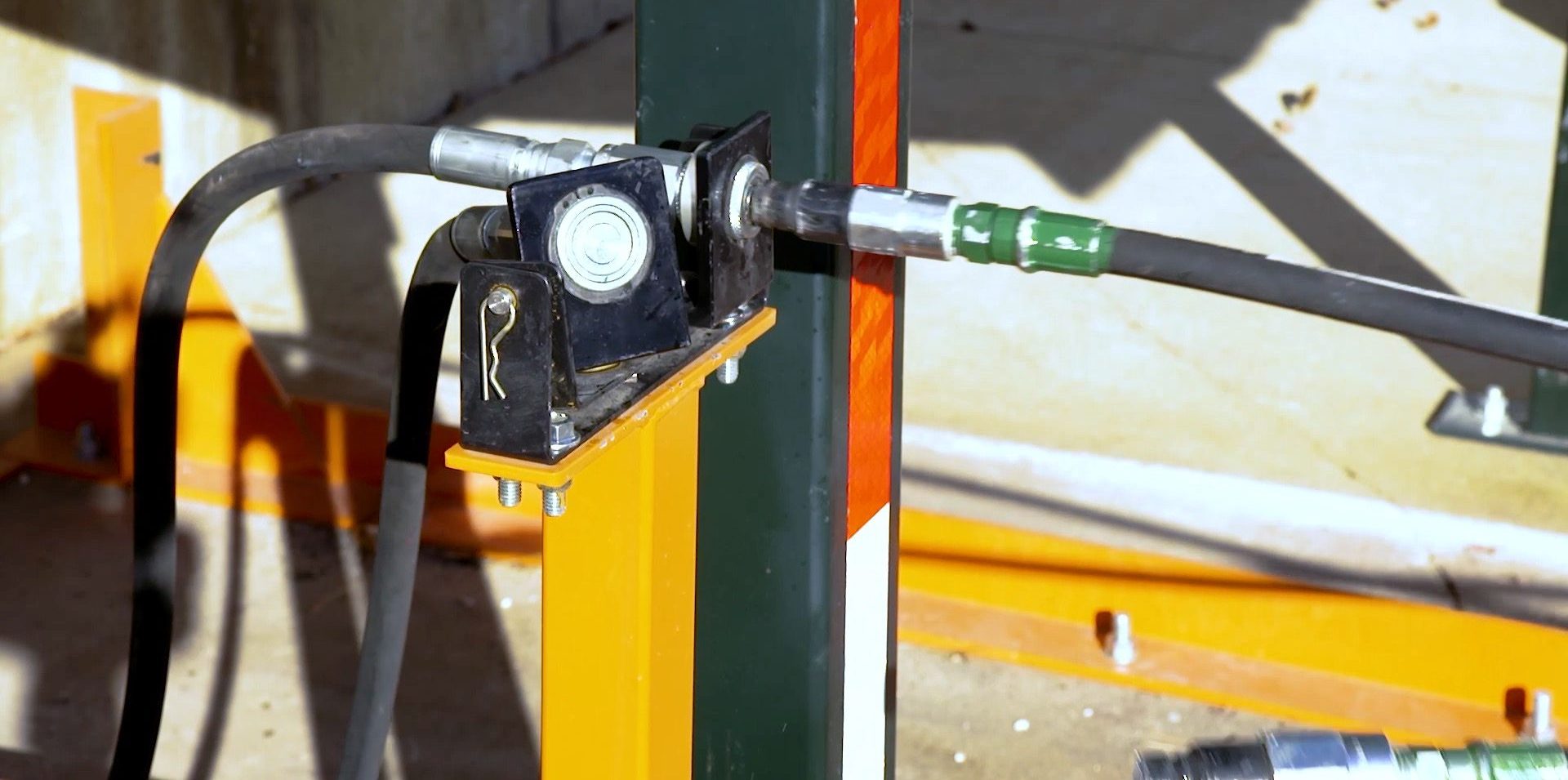Sustainability is no longer optional in the waste and recycling industry—it’s a necessity. As companies face increased scrutiny around environmental impact, one overlooked but significant risk is the hydraulic fluid spill caused by drive-off errors. These incidents are not only costly but can also result in serious harm to the environment.

The C-BASS (Compactor Break Away Safety System) from Stucchi offers a proactive solution to eliminate this risk, helping waste management operations reduce their environmental footprint while protecting their equipment.
The Environmental Risk of Hydraulic Spills
When a waste hauler unintentionally drives away while the compactor’s hydraulic hoses are still connected, the hoses can tear, rupture, or be forcibly disconnected. This results in uncontrolled spills of hydraulic fluid, which can:
- Contaminate soil and stormwater with petroleum-based fluids
- Harm nearby ecosystems, including vegetation, waterways, and wildlife
- Create hazardous worksite conditions for employees and service personnel
- Trigger fines and cleanup mandates from regulatory bodies like the EPA or state environmental agencies
These environmental and safety risks can escalate quickly—especially if the spill is not immediately contained or properly reported.
C-BASS: A Clean Break That Prevents Dirty Spills
The C-BASS system is engineered to prevent this specific problem. Installed on self-contained compactors, it acts as a controlled breakaway device for hydraulic hoses. If a hauler accidentally drives off while the hoses are still connected, the C-BASS ensures a clean, secure disconnection that eliminates uncontrolled tearing or rupture of the hydraulic lines.
Instead of a sudden rupture that spills fluid across a parking lot or loading dock, the system safely separates the connection, stopping fluid loss at the source. By addressing the risk at the moment it’s most likely to occur, C-BASS prevents the vast majority of spills caused by human error. Learn more about how the system works on the C-BASS product page.
Environmental and Regulatory Advantages

Preventing hydraulic fluid spills with C-BASS provides multiple environmental and operational benefits:
- Protects the environment by preventing petroleum-based fluid from contaminating nearby land and water
- Avoids costly cleanups and the need for spill kits, absorbent materials, and emergency response
- Supports regulatory compliance, helping companies stay ahead of federal and state environmental standards
- Reduces liability related to slips, worker injury, and property contamination
- Strengthens sustainability commitments and ESG (Environmental, Social, and Governance) reporting efforts
When environmental protection is built into your equipment, you avoid reactive responses and maintain consistent, compliant operations.
A Smarter Investment Than Cleanup Costs
For most waste service providers, the cost of retrofitting compactors with C-BASS is a fraction of the expenses related to environmental remediation. A single spill can lead to thousands of dollars in cleaning costs—not to mention reputational damage and potential legal exposure.
In contrast, C-BASS is a one-time investment that continuously prevents spills and protects your operation. Our cost/benefit analysis shows that even companies with modest-sized fleets can see a strong return by preventing just a few incidents yearly.
Greener Waste Management Starts Here
Stucchi’s C-BASS system is more than a safety mechanism—it’s part of a sustainable waste management strategy. You protect your team, the environment, and the bottom line by proactively preventing hydraulic spills. This simple yet effective upgrade can significantly improve waste management operations that take their environmental impact seriously.
Protect your facility and the environment with C-BASS. Stucchi offers expert guidance and proven ROI through our compactor breakaway safety system. Contact us today to build a safer, cleaner, more sustainable operation.

